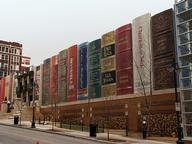Quiz Answer Key and Fun Facts
1. Walt Whitman is often called the "father" of what form of poetry?
2. What poetry collection of Walt Whitman was controversial in its own time and criticized as being obscene for its overt sensuality?
3. Which of these poems was written about the death of Abraham Lincoln?
4. "O ____! My ____! our fearful trip is done," Whitman writes, "The ship has weather'd every rack, the prize we sought is won." What word is missing from these verses?
5. Which of these Walt Whitman poems did NOT USE first-person narration?
6. "I celebrate myself, and ____ myself, / And what I assume you shall assume, / For every atom belonging to me as good belongs to you." What word is missing from these lines?
7. "Afoot and light-hearted I take to the _____, / Healthy, free, the world before me / The long brown path before me leading wherever I choose." What words are missing from these verses?
8. "Do I contradict myself?" Walt Whitman asks. "Very well then I contradict myself, (I am large, I contain _____.)" What does the poet contain?
9. "Keep your face always toward the sunshine, and shadows will fall behind you" is often attributed to Walt Whitman. Did Walt Whitman write these lines in any of his published poetry collections?
10. When he heard this man, the poet "became tired and sick" and "gliding out" he "wander'd off" by himself in "the mystical moist night-air, and from time to time, / Look'd up in perfect silence at the stars." What man caused the poet to glide outside?
11. What name is given to the cluster of Walt Whitman poems that celebrate "comradeship" or "adhesive love" between men?
12. To whom is the poet speaking when he says, "Come my tan-faced children, / Follow well in order, get your weapons ready, / Have you your pistols? Have you your sharp-edged axes?"
13. "A batter'd, wreck'd old man, / Thrown on this savage shore, far, far from home, / Pent by the sea and dark rebellious brows, twelve dreary months..." What explorer, Italian master navigator, and first governor of the Indies is Walt Whitman describing in these verses?
14. Which of the following is NOT a poem by Walt Whitman?
15. In "I Hear America Singing," which of the following professions is NOT mentioned?
Source: Author
skylarb
This quiz was reviewed by FunTrivia editor
looney_tunes before going online.
Any errors found in FunTrivia content are routinely corrected through our feedback system.

